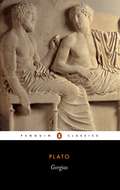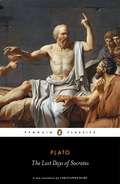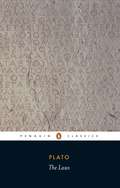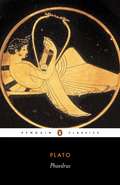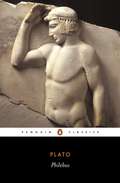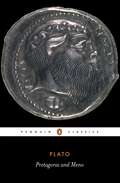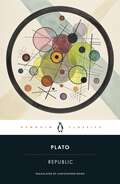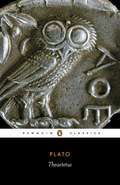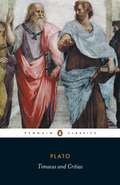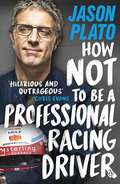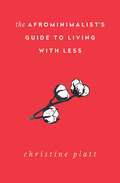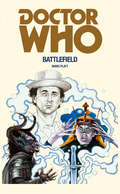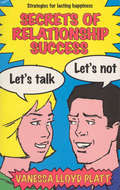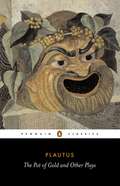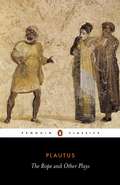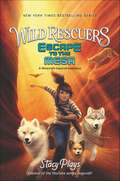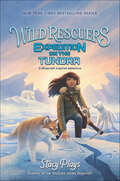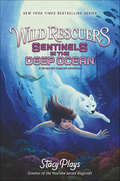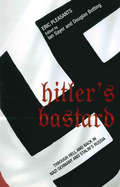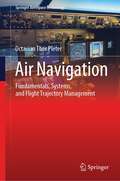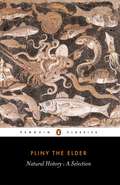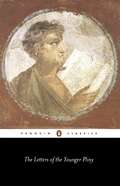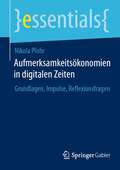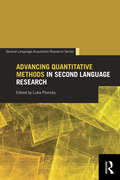- Table View
- List View
Gorgias
by PlatoTaking the form of a dialogue between Socrates, Gorgias, Polus and Callicles, GORGIAS debates perennial questions about the nature of government and those who aspire to public office. Are high moral standards essential or should we give our preference to the pragmatist who gets things done or negotiates successfully? Should individuals be motivated by a desire for personal power and prestige, or genuine concern for the moral betterment of the citizens? These questions go to the heart of Athenian democratic principles and are more relevant than ever in today's political climate.
The Last Days of Socrates
by PlatoEuthyphro/Apology/Crito/Phaedo'Nothing can harm a good man either in life or after death'The trial and condemnation of Socrates on charges of heresy and corrupting young minds is a defining moment in the history of classical Athens. In tracing these events through four dialogues, Plato also developed his own philosophy of a life guided by self-responsibility. Euthyphro finds Socrates outside the court-house, debating the nature of piety, while the Apology is his robust rebuttal of the charges against him. In the Crito, awaiting execution in prison, Socrates counters the arguments of friends urging him to escape. Finally, in the Phaedo, he is shown calmly confident in the face of death.Translated by HUGH TREDENNICK and HAROLD TARRANT with an Introduction and notes by HAROLD TARRANT
The Laws (Cambridge Library Collection - Classics Ser.)
by PlatoIn the Laws, Plato describes in fascinating detail a comprehensive system of legislation in a small agricultural utopia he named Magnesia. His laws not only govern crime and punishment, but also form a code of conduct for all aspects of life in his ideal state - from education, sport and religion to sexual behaviour, marriage and drinking parties. Plato sets out a plan for the day-to-day rule of Magnesia, administered by citizens and elected officials, with supreme power held by a Council. Although Plato's views that citizens should act in complete obedience to the law have been read as totalitarian, the Laws nonetheless constitutes a highly impressive programme for the reform of society and provides a crucial insight into the mind of one of Classical Greece's foremost thinkers.
Phaedrus
by PlatoPhaedrus is widely recognized as one of Plato's most profound and beautiful works. It takes the form of a dialogue between Socrates and Phaedrus and its ostensible subject is love, especially homoerotic love. This new translation is accompanied by an introduction, further reading, and full notes on the text and translation that discuss the structure of the dialogue and elucidate issues that might puzzle the modern reader.
Philebus
by PlatoTaking the form of a discussion between the hedonist Philebus, his naïve disciple Protarchus and Socrates, Philebus is a compelling consideration of the popular belief that pleasure is the greatest attainable good. Here, Socrates speculates on the differing intensities of both pleasure and pain; explores the notion that they can be divided into pure and impure types; considers the relationship between the one and the many; and establishes knowledge as a far higher goal. A profound argument that true fulfillment can only be achieved by the pursuit of beauty, truth and moderation, Philebus is among the earliest and most fascinating explorations of one of the most fundamental human questions: how to lead a good life.
Protagoras and Meno
by PlatoExploring the question of what exactly makes good people good, Protagoras and Meno are two of the most enjoyable and accessible of all of Plato's dialogues. Widely regarded as his finest dramatic work, the Protagoras, set during the golden age of Pericles, pits a youthful Socrates against the revered sophist Protagoras, whose brilliance and humanity make him one the most interesting and likeable of Socrates' philosophical opponents, and turns their encounter into a genuine and lively battle of minds. The Meno sees an older but ever ironic Socrates humbling a proud young aristocrat as they search for a clear understanding of what it is to be a good man, and setting out the startling idea that all human learning may be the recovery of knowledge already possessed by our immortal souls.
Republic
by PlatoAn authoritative new translation of Plato's The Republic by Christopher Rowe, with notes and an introduction.'We set about founding the best city we could, because we could be confident that if it was good we would find justice in it' The Republic, Plato's masterwork, was first enjoyed 2,400 years ago and remains one of the most widely-read books in the world: as a foundational work of Western philosophy, and for the richness of its ideas and virtuosity of its writing. Presented as a dialogue between Plato's teacher Socrates and various interlocutors, it is an exhortation to philosophy, inviting its readers to reflect on the choices to be made if we are to live the best life available to us. This complex, dynamic work creates a picture of an ideal society governed not by the desire for money, power or fame, but by philosophy, wisdom and justice.Christopher Rowe's accurate and enjoyable new translation remains faithful to the many variations of the Republic's tone, style and pace. This edition also contains a chronology, further reading, an outline of the work's main arguments and an introduction discussing Plato's relationship with Socrates, and the Republic's style, ideas and historical context.
Theaetetus
by PlatoSet immediately prior to the trial and execution of Socrates in 399 BC, Theaetetus shows the great philosopher considering the nature of knowledge itself, in a debate with the geometrician Theodorus and his young follower Theaetetus. Their dialogue covers many questions, such as: is knowledge purely subjective, composed of the ever-changing flow of impressions we receive from the outside world? Is it better thought of as 'true belief'? Or is it, as many modern philosophers argue, 'justified true belief', in which the belief is supported by argument or evidence? With skill and eloquence, Socrates guides the debate, drawing out the implications of these theories and subjecting them to merciless and mesmerising criticism. One of the founding works of epistemology, this profound discussion of the problem of knowledge continues to intrigue and inspire.
Timaeus and Critias
by PlatoTimaeus and Critias is a Socratic dialogue in two parts. A response to an account of an ideal state told by Socrates, it begins with Timaeus’s theoretical exposition of the cosmos and his story describing the creation of the universe, from its very beginning to the coming of man. Timaeus introduces the idea of a creator God and speculates on the structure and composition of the physical world. Critias, the second part of Plato’s dialogue, comprises an account of the rise and fall of Atlantis, an ancient, mighty and prosperous empire ruled by the descendents of Poseidon, which ultimately sank into the sea.
How Not to Be a Professional Racing Driver
by Jason Plato'HILARIOUS AND OUTRAGEOUS' CHRIS EVANS THE HILARIOUS FULL-THROTTLE MEMOIR FROM ONE OF THE BIGGEST CHARACTERS IN UK MOTOR RACINGSHORTLISTED FOR THE TELEGRAPH SPORTS BOOK AWARDS 2020 Two-time championship-winning and record-breaking racing driver, Jason Plato is a living, breathing example of what you shouldn't do if you want to become a professional racing driver: DO NOT: · Steal a JCB in Monaco and end up in prison there - twice · Kill Bernie Ecclestone (almost) · Choose fags and booze over the gym · Give Prince Charles the finger on the M42 · Make enemies with a 6ft 6" rival who is a black belt in everything Since joining the Williams Touring Car team in 1997 he has had more race wins than Lewis Hamilton and Stirling Moss, competed in more races than Jenson Button and set the largest number of fastest laps ever. But he's also a rule breaker who has had more than his fair share of near-death experiences, drunken escapades and more. There is nothing sensible, predictable or considered about Jason.But this is how he became a racing legend. ______ LONGLISTED FOR THE TELEGRAPH SPORTS BOOK OF THE YEAR AUTOBIOGRAPHY AWARD 'As entertaining as watching him drive, a cracking read!' Sir Chris Hoy 'Jason Plato is one of the most gifted racing drivers of his generation!' Damon Hill
The Afrominimalist's Guide to Living with Less
by Christine PlattForget the aesthetics of mainstream minimalism and discover a life of authenticity and intention with this &“warm, engaging guide&” (Laura Fenton, author of The Little Book of Small Living) to living with less…your way.When Christine Platt set out on her journey to live with less, she never intended to become The Afrominimalist. She just wanted to tame the chaos in her closet! But after struggling with the austerity and whiteness of mainstream minimalism, Christine realized why minimalism often seems unattainable for so many: the emphasis on all-white, barren aesthetics distracts from the practice of living with intention. And so, she decided to do things her way by curating a life of less influenced by the African diaspora. In The Afrominimalist&’s Guide to Living With Less, Christine gets right to the heart of how childhood experiences and expectations manifest in adulthood, the delicate dance between needs and wants, and the complicated weight of familial and societal pressures. A far cry from Konmaried closets, capsule wardrobes, and conspicuous consumption, Christine&’s brand of &“living with less&” is more than a decluttering regimen. &“By detailing her own maximalist-to-minimalist transformation, Platt puts readers at ease&” (The Washington Post) and presents a radical revisioning of minimalism, one that celebrates the importance of history and heritage, and gives you permission to make space for what really matters…your way. Beautifully illustrated with original black-and-white prints and line drawings, The Afrominimalist&’s Guide to Living With Less is a testament to the idea that anyone can be a minimalist and a warm invitation to a life curated with intention, perfect for readers of Joshua Fields Millburn and Ryan Nicodemus (The Minimalists), Marie Kondo, Joshua Becker, and Courtney Carver.
Doctor Who: Battlefield
by Marc PlattA UNIT nuclear convoy, stranded on the shores of Lake Vortigern, becomes the focus of an incursion by knights from a parallel reality. In this other world, technology and magic exist side by side, and the legends of King Arthur are fact. Close to the lake, the sinister Mordred battles against his enemy Ancelyn and summons his mother, the powerful witch Morgaine. Is the Doctor really Merlin? And will he discover what actually happened to King Arthur? But time is running out for everyone as Morgaine takes control of the nuclear weapons and summons the Destroyer – Lord of Darkness and Eater of Worlds… This novel is based on a Doctor Who story which was originally broadcast from 6–27 September 1989.Featuring the Seventh Doctor as played by Sylvester McCoy with his companion Ace
Secrets of Relationship Success
by Vanessa Lloyd PlattDivorce figures are at an all time high. In this provocative book Vanessa Lloyd Platt ponders who is to blame for this. Is it women who fail to balance work and home, turning it into a battle-ground, or men, who fail to help at home or communicate effectively? With quotes and anecdotes from both men and women Secrets of Relationship Success suggests how to reverse the bad habits which can destroy relationships, and provides tips and strategies for coping with adultery, stress, men's childishness and violence. By spotlighting these repeated behaviour patterns, Vanessa Lloyd Platt believes that relationships can be saved and set on the right path to lasting happiness.
Solar Thermal Energy Systems: Fundamentals, Technology, Applications
by Werner Platzer Robert StieglitzThis textbook is intended for master's level engineering students in the field of their studies. It begins with an analysis of the growing world population's energy demand (heat and electricity) and its connection to the undeniable climate change, necessitating the expansion of climate-friendly technologies. The book is divided into two sections. The first section (Chapters 2 to 7) presents the physical fundamentals of solar thermal energy usage, along with the necessary processes, methods, and models. The second section (Chapters 8-12) covers the synthesis of the developed fundamentals applied to various functional solar thermal systems. It not only provides the logic and methods for transferring the physical fundamentals into an operative technical system but also includes aspects of concept development, selection, economic evaluation, and performance. Additionally, measurement and control technology are presented, underpinned by real projects that have already been successfully implemented.
The Pot of Gold and Other Plays
by PlautusOne of the supreme comic writers of the Roman world, Plautus (c.254-184 BC), skilfully adapted classic Greek comic models to the manners and customs of his day. This collection features a varied selection of his finest plays, from the light-hearted comedy Pseudolus, in which the lovesick Calidorus and his slave try to liberate his lover from her pimp, to the more subversive The Prisoners, which raises serious questions about the role of slavery. Also included are The Brothers Menaechmus, which formed the prototype for Shakespeare's The Comedy of Errors, and The Pot of Gold, whose old miser Euclio is a glorious study in avarice. Throughout, Plautus breathes new, brilliant life into classic comic types - including deceitful twins, scheming slaves, bitter old men and swaggering soldiers - creating an entertaining critique of Roman life and values.
The Rope and Other Plays
by PlautusBrilliantly adapting Greek New Comedy for Roman audiences, the sublime comedies of Plautus (c. 254 -184 bc ) are the earliest surviving complete works of Latin literature. The four plays collected here reveal a playwright in his prime, exploring classic themes and developing standard characters that were to influence the comedies of Shakespeare, Molière and many others. In The Ghost, a dissolute son who has squandered his father's money is thrown into disarray when he returns from abroad, a theme that is explored further in the comedy of errors A Three-Dollar Day. In The Rope - regarded by many as the best of Plautus' plays - the shipwreck of a pimp and his slaves leads to the touching reunion of a father and his daughter, while Amphitryo, Plautus's only excursion into divine mythology, offers a cheerful account of how Jupiter became father to Hercules.
Wild Rescuers: Escape to the Mesa (Wild Rescuers #2)
by Stacy PlaysThe next installment in the New York Times bestselling series! From YouTube gamer StacyPlays comes the exhilarating sequel to her Minecraft-inspired adventure novel about a girl raised by wolves. Stacy would do anything to protect the Taiga where she lives with the pack of intelligent wolves who raised her. But when humans start to encroach on their forest, their only choice is escape to a place no Arctic wolf has gone before: the desert. The Mesa, with its canyons, snakes, and coyotes, will be like nothing the pack has ever seen. Even in this unfamiliar territory, Stacy is determined to rescue animals in need. But as she and her wolves face new dangers and old secrets, Stacy can’t help but wonder—where does she truly belong? Fans of DanTDM: Trayasaurus and the Enchanted Crystal and PopularMMOs Presents: A Hole New World will love this illustrated, action-packed series!
Wild Rescuers: Expedition on the Tundra (Wild Rescuers #3)
by Stacy PlaysA New York Times bestselling series!From StacyPlays, the YouTube sensation with over 2 million subscribers, comes the exhilarating third book in her Minecraft-inspired adventure series about a girl raised by wolves.Stacy always knew that the intelligent, playful wolves who raised her weren’t like other animals. Normal wolf packs don’t spend their time rescuing animals and caring for an orphaned girl. But lately, Stacy’s wolves have revealed to her just how special they are—supernaturally special. The wolves each have their own unique ability: they can breathe underwater, run at impossible speeds, heal wounds, and more. They’re extraordinary—but how did they get that way?Determined to uncover the truth, Stacy leads the pack north. But the harsh tundra biome pushes the pack to its limits. Can they survive long enough to discover the truth? And is Stacy prepared for what the truth actually is?Fans of Minecraft: The Crash and PopularMMOs Presents: A Hole New World will love this illustrated, action-packed series!
Wild Rescuers: Sentinels in the Deep Ocean (Wild Rescuers #4)
by Stacy PlaysFrom StacyPlays, the YouTube sensation with over 2 million subscribers, comes the exhilarating fourth and final book in her Minecraft-inspired adventure series about a girl raised by wolves.After barely surviving the harsh tundra biome, Stacy has finally discovered the origins of the intelligent, playful wolves who’ve raised her. But will Stacy be able to decode a mysterious diary that may hold the keys to her future in the taiga?As she races against time to uncover the secrets buried within the diary’s pages, Stacy and her pack set out on a new thrilling adventure across biomes. Will they beat the clock and make it to the farthest reaches of their world: the deep ocean? As they dive deeper into the unknown, Stacy and the wolves learn that the deep ocean may hold the biggest secret yet. Stacy's wolves might not be as alone in this world as they once thought. Fans of Minecraft: The Crash and PopularMMOs Presents: A Hole New World will love this thrilling conclusion to the illustrated, action-packed series!
Hitler's Bastard: Through Hell and Back in Nazi Germany and Stalin's Russia
by Eric PleasantsOf all the extraordinary individual accounts that have come out of the Second World War and its aftermath, few can compare with that of Eric Pleasants, a member of the 'bastard' British wing of Hitler's SS - the British Free Corps. In this compelling autobiography, Pleasants writes of the bizarre and traumatic years he spent as a prisoner of the twentieth century's most notorious dictators. A life-long pacifist, Pleasants spent the early years of the war on occupied Jersey. He was imprisoned by the Nazis for petty crimes and the years that followed held a whirlwind of unexpected turns. He lived life on the run in occupied Paris, was captured and recruited into the British Free Corps of the Waffen SS, found love with a young German woman, witnessed the bombing of Dresden and attempted to escape from Soviet troops along the sewers of Berlin. When the war ended, Pleasants found himself on the Communist side of the Iron Curtain. By now a strong man in a travelling circus, he was arrested by the KGB on charges of espionage and sentenced to 25 years' slave labour in the notorious camps of Artic Russia. Only with Stalin's death in 1953 was Pleasants finally released from his unique kind of purgatory, after nearly half a lifetime of peripatetic nightmare. He died in 1998 at the age of 87. Hitler's Bastard remains a remarkable testimony to his imperishable will to survive.
Air Navigation: Fundamentals, Systems, and Flight Trajectory Management (Springer Aerospace Technology)
by Octavian Thor PleterThis book takes a new approach to air navigation, extending the classic scope of positioning and guidance to efficient and safe 4D flight trajectory management. Modern air navigation aims at flight trajectories optimisation. There is an infinite number of solutions to the classic navigation problem of flying from one airport to another, but most of them are wasteful of resources and even risky. Minimising all costs and risks incurred by the 4D flight trajectory makes air navigation both efficient and safe, which are key factors in air navigation services. Beyond minimising fuel burn and CO2, efficiency addresses non-CO2 emissions and noise. This is a visually intensive book, using examples and case studies to illustrate the concepts, the physics of navigation and the mathematical models involved. Numerical examples reflect its problem-solving nature. It is useful to aerospace students, engineers, pilots, air traffic controllers, technicians, and scientists curious about aviation.
Natural History
by Pliny the ElderPliny's Natural History is an astonishingly ambitious work that ranges from astronomy to art and from geography to zoology. Mingling acute observation with often wild speculation, it offers a fascinating view of the world as it was understood in the first century AD, whether describing the danger of diving for sponges, the first water-clock, or the use of asses' milk to remove wrinkles. Pliny himself died while investigating the volcanic eruption that destroyed Pompeii in AD 79, and the natural curiosity that brought about his death is also very much evident in the Natural History - a book that proved highly influential right up until the Renaissance and that his nephew, Pliny the younger, described 'as full of variety as nature itself'.
The Letters of the Younger Pliny
by The Younger PlinyA prominent lawyer and administrator, Pliny (c. AD 61-113) was also a prolific letter-writer, who numbered among his correspondents such eminent figures as Tacitus, Suetonius and the Emperor Trajan, as well as a wide circle of friends and family. His lively and very personal letters address an astonishing range of topics, from a deeply moving account of his uncle's death in the eruption that engulfed Pompeii, to observations on the early Christians - 'a desperate sort of cult carried to extravagant lengths' - from descriptions of everyday life in Rome, with its scandals and court cases, to Pliny's life in the country.
Aufmerksamkeitsökonomien in digitalen Zeiten: Grundlagen, Impulse, Reflexionsfragen (essentials)
by Nikola PlohrDas essential beschäftigt sich mit den Zusammenhängen von Aufmerksamkeit und Digitalisierung. Dabei rückt Aufmerksamkeit unter dem Begriff der Aufmerksamkeitsökonomie als endliche Ressource in den Blick. Im Zentrum stehen die Fragen: Wie wird Aufmerksamkeit durch Digitalisierung neu geformt, verteilt, zentriert, aber auch zerstreut? Welche Chancen und Risiken gehen mit dieser Entwicklung einher? Welchen Einfluss nehmen KI-basierte Tools? Welche Folgen lassen sich auf individueller, unternehmerischer und gesellschaftlicher Ebene beobachten? Die theoretischen Überlegungen zu den verschiedenen Ebenen von Aufmerksamkeitsökonomien werden dabei jeweils mit Studien aus der (Medien)Psychologie unterlegt und mit Beispielen aus der KI-Entwicklung ergänzt. Zudem werden praxisnahe Impulse und Reflexionsangebote vermittelt, die sich für die Übersetzung in den (Unternehmens-)Alltag eignen und auf den bewussten, individuellen Umgang mit der Ressource Aufmerksamkeit abzielen.
Advancing Quantitative Methods in Second Language Research (ISSN)
by Luke PlonskyAdvancing Quantitative Methods in Second Language Research is the first hands-on guide to conducting advanced research methods in the fields of applied linguistics and second language studies. While a number of texts discuss basic quantitative research methodology, none focus exclusively on providing coverage of alternative advanced statistical procedures in second language studies from a practical approach. The text is bookended by discussions of these advanced procedures in the larger context of second language studies, debating their strengths, weaknesses, and potential for further research; the remaining chapters are how-to sections, each chapter following the same organization, on a wide variety of advanced research methods. By offering much-needed coverage on advanced statistical concepts and procedures, with an eye toward real-world implementation, Advancing Quantitative Methods in Second Language Research enhances the methodological repertoire of graduate students and researchers in applied linguistics and second language studies.For additional content, visit: http://oak.ucc.nau.edu/ldp3/AQMSLR.html
